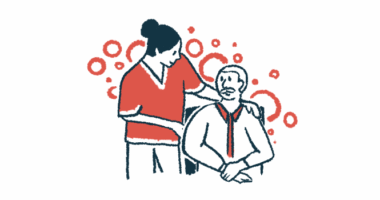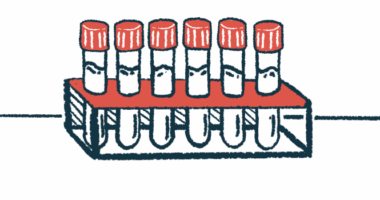Life with ALS is hard whether it’s a sprint or a marathon
Each type of race brings unique challenges, a columnist explains

My son joined middle school track this year, and after a few days of practice, my husband, Todd, asked how it was going.
“I’m not a long-distance runner,” he said. “I don’t know how to pace myself.”
“I was no good for any distance, either,” Todd said. “I ran the 200- and 400-meter dashes.”
“You were in track?” my son asked incredulously. We’ve both heard Todd talk about high school wrestling, but neither of us have heard him mention that he was in track.
Yesterday was my son’s first track meet. He competed in the 200-meter hurdles event, which had two heats of runners. My son was in a heat with only two other boys — one of his buddies and a kid from another school. He and his buddy sprinted ahead of the other runner and were neck and neck for the first 100 meters, my son just slightly ahead. His friend pushed forward, and my son glanced sideways at him. With a burst of speed, my son pulled ahead, winning his heat and ultimately the event.
My son said he’d never run that hard before.
A hard race
ALS is a sprint for some and a long-distance race for others, but we don’t entirely know which it is when it begins.
Sometimes people new to the disease ask, “Should we spend money on renovating our home so we have an accessible bathroom, or should we travel?”
It depends.
When Todd was diagnosed with ALS, his neurologist told him, “Progression is typically linear. If it starts slow, it will continue slow.” Based on Todd’s self-assessment of his strength a year prior, he thought he may be on the upper end of the bell curve relative to the estimated two-to-five-year life expectancy after symptom onset. We put our house on the market and made plans to build a one-story house with wide doorways and an accessible bathroom.
A year later, one of our neighbors also was diagnosed with ALS. In his case, the disease was progressing quickly, and he and his wife chose to travel to Europe to meet her family. He left walking and returned in a wheelchair. A mobility store loaned him a used scooter, and volunteers built a ramp into his house. There was no time for him and his wife to even consider home renovations. He died a year later.
Todd was in a power wheelchair by his fourth year of ALS, but he was still breathing well enough, and we thought he probably had a few active years left. We made a similar calculation with our decision to purchase an accessible vehicle. It was convenient and improved his quality of life, but at this point, if the van dies, it would make more sense to use a transport service on the rare occasions he needs to see a doctor, as he only leaves our home for medical appointments now.
After five years with the disease, we realized we were in a long-distance race, and I would need to pace myself with caregiving, particularly at night. Todd wasn’t able to sleep independently, and I wasn’t able to go without uninterrupted sleep for long. I did it for months, but when that turned into a year and then two, it became unsustainable. We eventually started hiring nighttime help. On nights when we don’t have a caregiver, Todd stays up on his computer and in his wheelchair, where he is more independent and can adjust his seat to stay comfortable. I get a few hours of sleep and then get up to put him into bed.
I’ve also had to pace myself with other demands of caregiving. I’ve learned not to immediately switch gears every time he asks for something. If Todd asks me to do something that isn’t urgent, I might choose to finish whatever I’m in the middle of first, such as loading the dishwasher.
Todd sometimes calls me with panic in his voice, either to use the bathroom or to cough. In those moments, I move swiftly, but I’ve learned to stay calm and work methodically, detached from the stress of the situation so I can do what needs to be done.
ALS is a hard race, whether it’s a sprint in which we run harder than we’ve ever run before or a marathon where we try to pace ourselves to go the distance.
Note: ALS News Today is strictly a news and information website about the disease. It does not provide medical advice, diagnosis, or treatment. This content is not intended to be a substitute for professional medical advice, diagnosis, or treatment. Always seek the advice of your physician or other qualified health provider with any questions you may have regarding a medical condition. Never disregard professional medical advice or delay in seeking it because of something you have read on this website. The opinions expressed in this column are not those of ALS News Today or its parent company, Bionews, and are intended to spark discussion about issues pertaining to ALS.








Leave a comment
Fill in the required fields to post. Your email address will not be published.